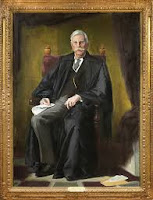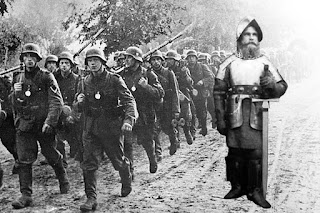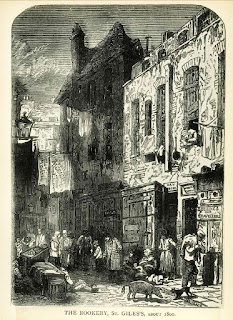Get Down You Damned Fool! President Abe Lincoln Under Fire During the Battle of Fort Stevens July 12, 1864
By July of 1864 the Union Army’s assault on the Confederate capital of Richmond, Virginia though massive and determined, had ground to a complete and bloody halt.
Tens of thousands of young American soldiers lay dead scattered across the fields and woodlands of northern Virginia. A veritable state of siege, centered around the strategically important railroad town of Petersburg, had begun to settle in between the two opposing armies. Public outcry in the north started calling Ulysses S. Grant -Commanding General of the Union Army of the Potomac-a drunkard and a butcher. The press clamored for President Lincoln to fire or demote his erstwhile General.
Sensing an opportunity, and seeking to capitalize on the bloody stalemate that was the American Civil War in July of 1864, a Confederate Army composed of 10,000 elite troops led by the audacious and flamboyant General Jubal Early moved north towards Washington DC. The Confederacy hoped to take the Union forces by surprise and to storm our nation’s capital in one bold stroke that might end the war.
 |
| Jubal Early |
On July 12, 1864 as General Early’s attack on Washington reached its zenith, President Lincoln and his wife Mary took a carriage from the White House to the Union stronghold of Fort Stevens, only a few miles from the city, to witness the action firsthand.
Union reinforcements were being rushed to meet the Confederate advance and Fort Stevens itself was being defended by several thousand soldiers and artillerists from the states of Massachusetts and Ohio. Although Fort Steves was indeed an impressive defensive position, with high and intimidating parapets and large caliber artillery, the Confederate assault on the Fort by the 10,000 battle hardened troops under Jubal Early’s command was relentless.
Union soldier Elisha Hunt Rhodes, who served in the Army of the Potomac for the duration of the war and was himself a veteran of many battles, said of the defense of Fort Stevens that, “It was very warm work.” Rhodes goes on to say that, “As we were told that the President and many ladies were looking at us, every man tried to do his best.”
President Lincoln, who along with his wife Mary, was relatively safe inside Fort Stevens itself while the battle raged just outside the ramparts, recklessly climbed atop one of the large caliber cannon platforms to poke his head over the wall and get a better view of the action outside.
 |
| Inside Fort Stevens 1864 |
Legend has it that it was Oliver Wendell Holmes Jr., who one day later in life from 1902 to 1935 would go on to serve as one of the most esteemed United States Supreme Court Justices in our nation’s history, but who in 1864 was a twenty-three year old Lieutenant in a Massachusetts artillery regiment, shouted at the President, “Get down you damned fool!”
Though Oliver Wendell Holmes Jr. definitely did serve at the Battle of Fort Stevens, history doesn’t tell us for certain if it was, in fact, he who shouted an irreverent order at the President. But because there were so many witnesses, both military and civilian at the battle, we can say with certainty that someone that day called Abraham Lincoln, “A damned fool,” and told him in no uncertain terms to get his top hatted head down. And with good reason too!
An army surgeon who was standing next to Lincoln at the moment he poked his head over the parapet was wounded in the shoulder and, as could be imagined if all the Union soldiers knew that the President was in the fort during the battle so too did all the Confederate soldiers, and their sharpshooters promptly took aim once they saw Abe Lincoln’s well known visage peek over the top.
A withering fire ensued and President Lincoln beat a hasty retreat back to the relative safety of the inside of the fort.
Soon more Union reinforcements arrived at Fort Stevens and General Jubal Early realized that he did not have enough men to continue his assault on Washington and that to do so would risk destroying his entire army and needlessly sacrifice some of the Confederacy’s best remaining soldiers.
On the night of July 12, 1864 Jubal Early and the remnants of his army retreated back into Virginia and the Battle for Fort Stevens was over. Though technically, the battle may have been a victory for the Union Army, when he returned to the main Confederate lines of the Army of Northern Virginia, Jubal Early is said to have told his second in command, “Major we didn’t take Washington but we scared ole’ Abe Lincoln like hell!”
 |
| Supreme Court Portrait Oliver Wendell Holmes Jr. |
Today, most historians agree that it was probably not Oliver Wendell Holmes Jr. who yelled at the President to get down and called him a damned fool, although the story does make for an interesting bit of American folklore.
Most probably, it was another officer, quite possibly Horatio Wright who was in charge of the garrison at Fort Stevens (and would have been held responsible had the President been killed or wounded) who shouted at Abe Lincoln and called him a damned fool. Some historians think it may even have been a woman, quite possibly Elizabeth Thomas, a friend of Mary’s who had come out with the Lincoln’s to watch the battle herself who yelled at the President.
Though we’ll never know the truth behind who said what, we can be certain that had Abraham Lincoln not gotten his head down in time during the Battle of Fort Stevens on July 12, 1864, than American history as we know it might have turned out quite differently.
 |
| Marker on the spot where Lincoln peeked over the top |
Tragically, only ten months after the Battle of Fort Stevens and only days after the Union reigned victorious in the American Civil War, as a new dawn of freedom was just beginning to rise over the United States of America, our nation’s greatest President, Abraham Lincoln, would be murdered in cold blood by a different kind of bullet--one to the back of the head in a theater fired by a cowardly assassin and delusional southern sympathizer named John Wilkes Booth…




Comments
Post a Comment